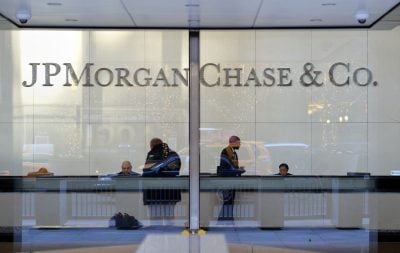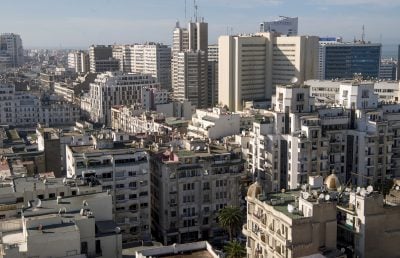As Africa seeks to achieve its economic and development goals, policymakers are becoming increasingly attuned to the profound problem of illicit financial flows (IFFs) – the illegal movement of money out of the continent.
While estimates vary for precisely how much this activity is costing Africa, the numbers tend to be sizeable. The Africa Growth Initiative at the Brookings Institute suggested that between 1980 and 2018, around $1.3tn had left Sub-Saharan Africa through IFFs – “posing a central challenge to development financing.”
The United Nations Conference on Trade and Development (UNCTAD) estimated in 2020 that Africa sees annual capital flight of $88.6bn – and pointed out that curbing these flows would allow Africa to bridge 50% of its Sustainable Development Goals financing gap.
Some analysts have suggested there is a direct correlation between IFFs and development spend. According to UNCTAD, African countries with high IFFs spend on average 25% less on health and 58% less on education than countries with lower amounts of illegal financial activity.
Speaking to African Business from the Mo Ibrahim Governance Weekend in Marrakech, Pascal Saint Amans, co-chair of the Africa-Europe Foundation Working Group on Illicit Financial Flows, says “there are three main things driving this problem.”
“The first is Africa’s vulnerability to criminal activities. Secondly, there is a lack of enforcement, which facilitates these illicit financial flows. And thirdly, the structure of the [global economic] system does not help Africa – it was designed by colonial powers,” he explains.
Inadequate enforcement
Victor Sekese, chief executive at SNG Grant Thornton in Johannesburg, adds that Africa is particularly susceptible to this as its financial institutions often do not have sufficient controls in place to prevent illicit activity.
“Bad actors are able to launder money out of Africa through bogus companies or domains,” he explains. “South Africa, and some other African countries, have been grey-listed by the [intergovernmental] Financial Action Task Force (FATF) because weak controls in the financial system mean transactions that are illegal nonetheless get through.”
“When you look at Africa more widely, the other concern is that the continent tends to have porous borders,” Sekese adds. “This makes it easier to send goods over borders and avoid customs officials and other authorities.”
New technologies are making it even easier to shift money across borders. Cryptocurrencies, for example, provide a quick and easy way for bad actors to get their money out of Africa – in a way that is very difficult for the authorities to track.
Saint Amans calls crypto “toxic” and notes that “it is a very easy way to shift your money without being tracked.”
“It is extremely saddening as the rise of crypto happened just at the time when we managed to crack down on bank secrecy,” he adds. “This has really recessed, but we now have a new big avenue for hiding assets.”
But it is not just criminal activity which is the problem. In many cases, African countries are not harnessing domestic sources of capital to their full potential as a result of poorly drafted regulations or tax rules.
Saint Amans points out that “we have seen companies take advantage of tax exemptions – they will report massive profits when they are exempt and run losses when they are not exempt.”
“Profit shifting can be legal, but this is bad law,” he tells African Business. “With commodities, you also have mispricing where companies will export products such as diamonds for nothing to avoid paying custom duties or other taxes in certain countries. This is also a way of depriving African countries of their wealth.”
In order to maximise revenue from domestic sources, Saint Amans argues that, as well as preventing illicit financial flows, African countries need to work out ways to drive up their tax intake.
Indeed, the continent currently has some of the lowest tax-to-GDP ratios anywhere in the world. In 2022, the Organisation for Economic Co-operation and Development (OECD) estimated that the average African ratio was 16% – less than half the OECD average of 34%.
This is mainly because 85% of workers in Sub-Saharan Africa are working informally in roles such as market traders, street vendors, and agricultural workers. This means they tend not to be properly monitored or taxed by the state.
“While the existence of a huge informal sector is not a financial flow outside the country, it is also a hurdle to development,” he says. “We need a virtuous circle where people accept being taxed but recognise they then have access to a social network.”
However, this may be easier said than done. In Kenya last year, for example, the government proposed raising taxes on some essential goods and services in a bid to help increase the government’s tax receipts and fund the country’s development goals.
This sparked deadly protests and forced the government to drop most of the measures, raising questions as to whether reforming Africa’s tax systems is politically feasible.
Saint Amans suggests that this is possible, but governments need “to be very careful and progressive in the way they operate.” He argues that citizens are not necessarily against taxes in themselves, but that “sometimes it might be because they do not see what they get in exchange for the tax – this is the conundrum.”
Technology spurs fightback
These twin ambitions – preventing the illicit flow of money out of the continent while driving up domestic tax intake – are challenging for African governments with limited resources.
Sekese is optimistic that technology could provide some answers.
“There is definitely scope to accelerate the use of generative AI to prevent illicit financial flows,” he tells African Business.
“A lot of financial institutions are going on a big digital drive to use technology and AI to identify illicit flows and catch them before they go into the system,” Sekese says. He adds that banks could also leverage such technology to work more closely with tax authorities and other officials.
“What some banks have started doing is putting AI into their system to run analytics on things such as tax filings – and then using that to identify anomalies and follow up with taxpayers.”
Saint Amans similarly believes that investing in technology and modernising their existing processes are crucial if African governments are to get a grip on these challenges.
“Administration 3.0, leapfrogging, moving from paperwork to digital administration – all this reduces the risk of corruption and illicit financial flows, while improving the reliability of tax collection,” he says.
Beyond these practical measures, Sekese also believes a change in mindset is needed among both policymakers and the wider public.
“In many African countries, unfortunately, it has become the norm that we live alongside corruption. Generally, within the continent, there is a high tolerance for unethical behaviour,” he says. “Of course, you need to look at the technical, more mundane aspects, such as technology controls.”
“But at the end of the day, if society seems to be comfortable living alongside corruption, we are doomed to have this problem persist into the future.”
Want to continue reading? Subscribe today.
You've read all your free articles for this month! Subscribe now to enjoy full access to our content.
Digital Monthly
£8.00 / month
Receive full unlimited access to our articles, opinions, podcasts and more.
Digital Yearly
£70.00 / year
Our best value offer - save £26 and gain access to all of our digital content for an entire year!

 Sign in with Google
Sign in with Google 



